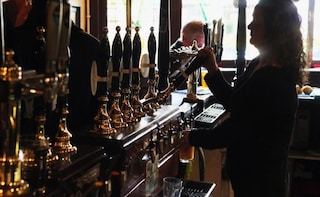Food for thought ... can pubs get by without going gastro? Photograph: Oli Scarff/Getty Images
Advertisement
Advertisement
For the latest food news, health tips and recipes, like us on Facebook or follow us on Twitter and YouTube.
Advertisement
